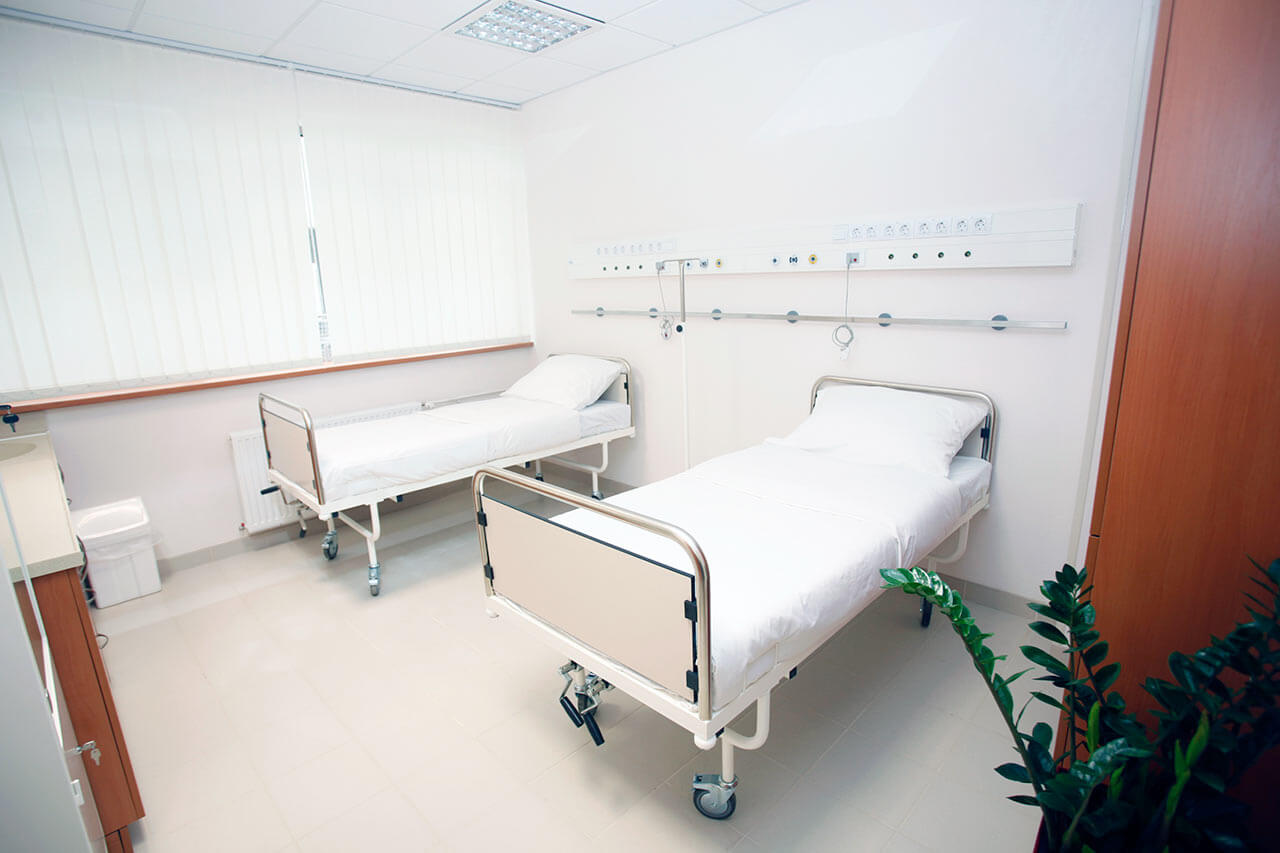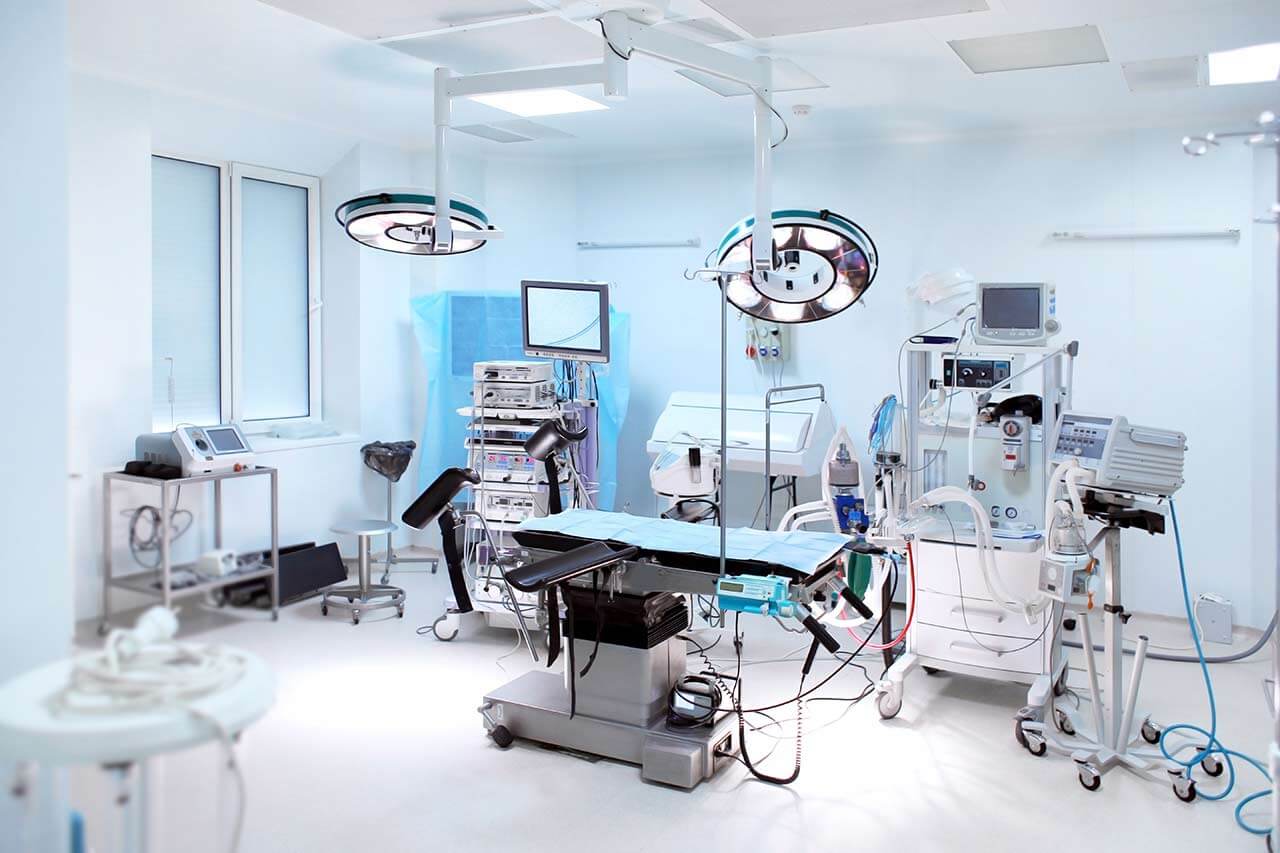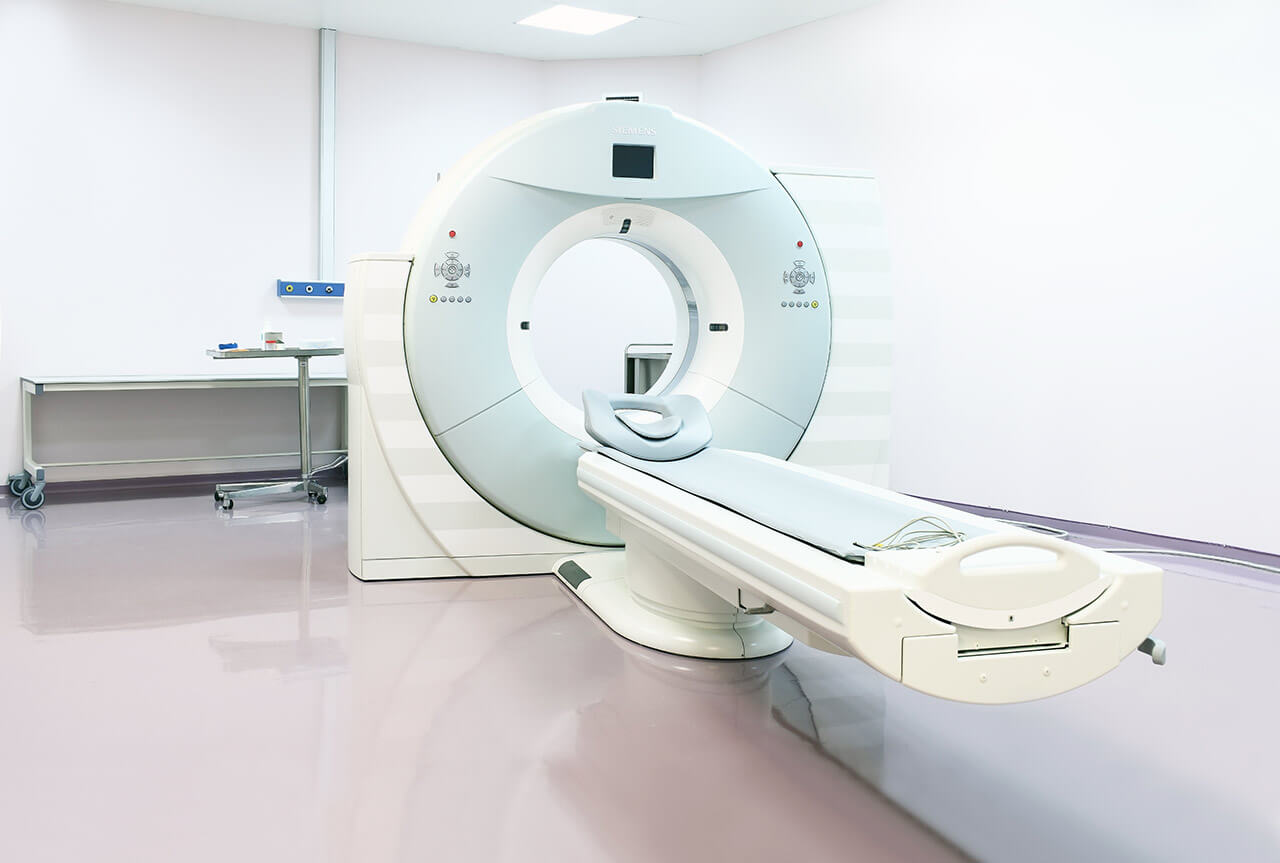
The program includes:
- Initial presentation in the clinic
- clinical history taking
- review of medical records
- physical examination
- laboratory tests:
- complete blood count
- biochemical analysis of blood
- Lipid metabolism (HDL/LDL, cholesterol,
triglycerides Lip(a), homocysteine) - blood coagulation analysis (aPTT, PT, INR)
- inflammation indicators (CRP, ESR)
- metabolic status (uric acid, total glucose, HbA1c)
- cardiovascular disease risk markers
- kidney function test (creatinine, urea)
- color doppler echocardiography
- color doppler sonography of renal arteries
- duplex renal arteries
- CT/ MRI-angiography of renal arteries
- preoperative care
- angioplasty of renal artery with implantation of stents (max. 2)
- blood transfusions (if needed)
- symptomatic treatment
- control examinations
- the cost of essential medicines and materials
- nursing services
- full hospital accommodation
- developing of further guidance
Required documents
- Medical records
- Doppler ultrasound/duplex scanning of the renal arteries (if available)
- Renal angiogram (if available)
Service
You may also book:
 Price:
Price:
About the department
The Department of Interventional Radiology and Neuroradiology at the Asklepios Hospital Barmbek Hamburg offers the full range of medical services in the areas of its specialization. The department's medical team, consisting of more than 50 employees, performs high-precision imaging examinations, including X-ray, mammography, angiography, myelography, computed tomography, and magnetic resonance imaging. The results of diagnostic examinations are stored in the picture archiving and communication system (PACS), so the department's doctors and specialists from other departments of the hospital have unhindered access to the images. Whenever required, the patient can receive a disc with their diagnostic results. An integral part of the department's clinical practice is the interventional treatment of vascular diseases, including cerebrovascular conditions, oncological diseases, and chronic back pain. Interventional procedures are performed under imaging guidance, which ensures the high safety of the treatment. In most cases, they are carried out under local anesthesia on an outpatient basis. The department’s specialists devote enough time to consulting patients and talking in detail about how this or that therapeutic manipulation will be performed. Hygiene and safety standards are strictly observed in the department's operating rooms. The Head Physician of the department is Prof. Dr. med. Roland Brüning.
Technical equipment plays an important role in high-precision imaging diagnostics and interventional treatment. The doctors at the medical facility work with state-of-the-art equipment, which allows them not only to obtain high-quality images but also to ensure minimal radiation load on the human body. The department has systems for classical X-ray, two computed tomography scanners (128-slice and 64-slice), two high-performance 1.5 and 3 Tesla magnetic resonance imaging scanners, and systems for angiography and mammography. If necessary, the specialists may use contrast enhancement during imaging diagnostics. As a rule, CT, MRI, X-ray, and angiography take no more than 10-20 minutes. The examinations are absolutely painless and are most often performed on an outpatient basis.
The department also offers minimally invasive image-guided interventional treatment. The priority focuses of the department's specialization include treatment of vascular stenosis, vascular obstructions, and cancers. The department regularly performs percutaneous transluminal angioplasty to eliminate renal artery stenosis, which causes drug-resistant arterial hypertension and increases the risk of kidney failure. Percutaneous transluminal angioplasty is usually performed through the femoral artery. The doctor uses a catheter to deliver a balloon to the narrowed kidney artery and inflate it, which restores normal patency of the affected artery. A stent is implanted in the lumen of the renal artery to prevent its recurrent stenosis or obstruction. The therapeutic procedure is performed under local anesthesia.
Percutaneous transluminal angioplasty can also be performed for peripheral arterial disease of the lower extremities (obliterating endarteritis). This pathology causes narrowing of the lumen of the arteries, which results in impaired blood circulation. Before the procedure, the specialists perform digital subtraction angiography, which identifies narrowed areas in the arteries of the lower extremities. Percutaneous transluminal angioplasty allows patients with obliterating endarteritis to have sparing but, at the same time, effective treatment. It is worth noting that not so long ago, the only treatment method for the disease in its advanced stages was amputation of the lower extremity.
The department's interventional radiologists also treat patients with cancer. One of the most demanded procedures in doctors' clinical practice is transarterial chemoembolization (TACE). This treatment is indicated for patients with liver cancer (hepatocellular carcinoma) or with liver metastases in the presence of contraindications to a surgical intervention. During the TACE procedure, doctors perform embolization under angiography guidance, which is the occlusion of blood vessels supplying the tumor by injecting special emboli (microspheres) containing a chemotherapy drug. The therapeutic effect is achieved by blocking the blood vessels supplying the tumor and the local impact of the chemotherapy drug, resulting in tumor necrosis (death).
The department is one of the few medical facilities in Germany whose specialists perform the procedure of chemosaturation. This is localized chemotherapy with high doses of chemotherapeutic agents. The interventional treatment method is also used for patients with unresectable malignant liver tumors and liver metastases. The chemotherapy drug is injected directly into the hepatic artery under imaging guidance. To prevent the chemotherapy drug from entering the systemic bloodstream, a special filter balloon is also placed in the hepatic artery. Thus, the side effects of the chemotherapy drug are practically eliminated.
The team of neuroradiologists specializes in imaging diagnostics and interventional treatment of brain and spinal cord diseases. The physicians collaborate closely with neurologists and neurosurgeons to provide patients with a comprehensive approach to solving the problem. The diagnostic offer in the field of neuroradiology includes radiography, computed tomography, magnetic resonance imaging, angiography, and myelography. As for the treatment, the health facility offers lysis therapy and mechanical recanalization for stroke, percutaneous transluminal angioplasty followed by stent implantation for cerebral artery stenosis and obstruction, and interventional pain management for chronic back pain.
The department's range of medical services includes:
- Interventional radiology
- Therapeutic procedures
- Percutaneous transluminal angioplasty
- Transarterial chemoembolization (TACE)
- Chemosaturation
- Radiofrequency ablation
- Therapeutic procedures
- Interventional neuroradiology
- Therapeutic procedures
- Lysis therapy
- Mechanical recanalization
- Percutaneous transluminal angioplasty
- Pain management
- Facet joint infiltration
- Periradicular therapy
- Nerve plexus block
- Therapeutic procedures
- Other medical services
Curriculum vitae
Prof. Dr. med. Roland Brüning studied medicine in Hamburg, Freiburg, Breisgau, and Munich. In 1989, the doctor became a Research Fellow in the Department of Radiology at the University Hospital of Ludwig Maximilian University of Munich. In 1993, he became a Scholar of the German Research Foundation at the Massachusetts General Hospital at Harvard Medical School, Boston, USA. Subsequently, the professor completed his training in radiology at the Institute of Diagnostic Radiology of the Ludwig Maximilian University of Munich. In 1996, Dr. med. Brüning became a Senior Physician. In 2001, he became a professor. In 2002, Dr. med. Brüning joined the Department of Neuroradiology at the University Hospital of Ludwig Maximilian University of Munich, where he had special training in Neuroradiology.
Prof. Brüning is the author of numerous publications and his own books. His clinical interests include CT and MRI imaging diagnostics, as well as image-guided interventional therapeutic procedures.
Since November 2005, Prof. Brüning has been the Head Physician of the Department of Interventional Radiology and Neuroradiology at the Asklepios Hospital Barmbek Hamburg. He is also a Visiting Professor at the Ludwig Maximilian University of Munich.
Photo of the doctor: (c) Asklepios Klinik Barmbek
About hospital
The Asklepios Hospital Barmbek Hamburg is an academic hospital of the University of Hamburg. The hospital was opened in 2005, and today it is one of the best and most modern medical centers in Europe. The priority areas of specialization of the medical facility are emergency medical care and comprehensive treatment of cancer, urologic diseases, gastrointestinal diseases, and pulmonary diseases, as well as abdominal surgery and thoracic surgery. The hospital provides patients with top-class medical services that meet international standards.
The hospital has 620 beds. More than 36,000 inpatients and about 74,000 outpatients are treated here every year. The patients' health is in the safe hands of a highly professional team of over 1,600 doctors and nursing staff.
The hospital offers high-quality diagnostic and therapeutic services and strictly follows current clinical protocols. The hospital boasts modern infrastructure and state-of-the-art medical equipment. The hospital is one of the few in Europe where patients are successfully operated on using the da Vinci surgical system. The hospital also houses well-equipped endoscopy rooms, cardiac catheterization laboratories, laser surgery rooms, and operating rooms for arthroscopic interventions. All these technical resources contribute to effective and, at the same time, minimally traumatic treatment.
It is worth noting that the hospital has vast experience in serving international patients. According to the Medical Travel Quality Alliance (MTQUA), the Asklepios Hospital Barmbek Hamburg ranks among the top three medical centers worldwide for medical tourism.
The medical center also holds the international DIN EN ISO 9001:2015 quality certificate, attesting to the excellent medical services provided. For its outstanding achievements in oncology and surgery, the hospital has been awarded certificates from the German Cancer Society (DKG) and the German Society for General and Visceral Surgery (DGAV).
Photo: (с) depositphotos
Accommodation in hospital
Patients rooms
The patients of the Asklepios Hospital Barmbek Hamburg live in comfortable single and double rooms. Each patient room has an ensuite bathroom with a shower and a toilet. The patient room furnishings include an automatically adjustable bed, a bedside table, a table and chairs for visitors, a TV, a radio, and a telephone. Wi-Fi access is also available in the patient rooms.
Patients can also be accommodated in enhanced-comfort rooms, which additionally include a rest area with upholstered furniture and a working area with a desk and a reading lamp. The bathroom in the enhanced-comfort rooms includes necessary toiletries, changeable towels, bathrobes, slippers, and a hairdryer. The enhanced-comfort rooms correspond to the standards of a high-class hotel.
Meals and Menus
The hospital offers tasty and balanced meals. Patients receive several menus to choose from and can see the menu in advance using a special mobile application. The hospital takes patients' food preferences into account and offers a wide range of dietary and vegetarian dishes. Breakfast, lunch, and dinner are served in the patient's room.
There is a cozy cafeteria on the first floor of the hospital where one can enjoy a cup of aromatic coffee or delicious tea with a dessert. The cafeteria offers a wide selection of snacks and salads.
There is a small store on the territory of the hospital where one can buy fresh fruits, yogurts, sweets, and magazines.
Further details
Standard rooms include:
Religion
There is a prayer room on the first floor of the hospital where patients can find solitude for prayer.
The hospital has an evangelical pastor who is happy to talk with patients and support them in the process of their treatment.
Representatives of other religions are available upon request.
Accompanying person
Your accompanying person may stay with you in your patient room or at the hotel of your choice during the inpatient program.
Hotel
You may stay at the hotel of your choice during the outpatient program. Our managers will support you for selecting the best option.



